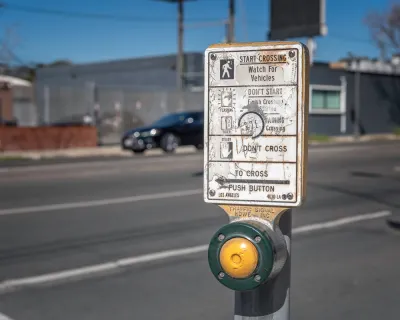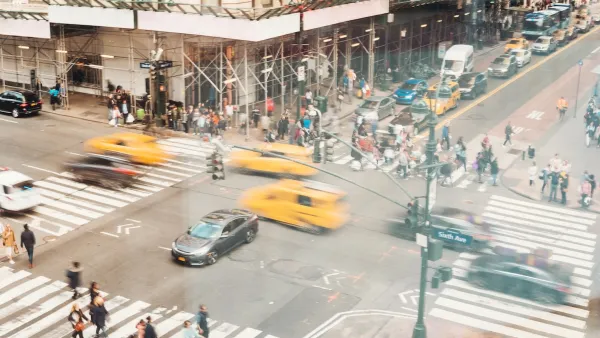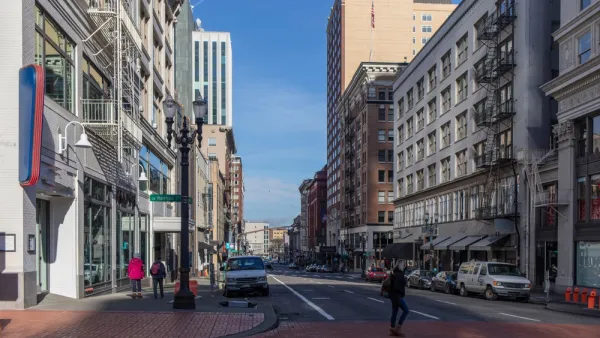Communities of color have significantly higher rates of traffic fatalities, according to federal research.

New federal data from the National Highway Traffic Safety Administration (NHTSA) reveals “significant disparities” in traffic fatalities between racial and ethnic groups in the United States, according to an article by Dan Rosenbaum in Smart Cities Dive.
Research undertaken in 2022, the first of its kind to examine “traffic safety in the context of race and ethnicity,” found that traffic deaths per 100,000 varied from 10.92 for White people to 24.75 for American Indian or Alaska Native people. Pedestrian deaths showed even stronger disparities: “In 2018, the pedestrian fatality rate for American Indian or Alaska Native people was 3.42 times the rate for White people; for Black people, it was 1.97 times the rate for White people. Asian pedestrians died at slightly more than half the rate of White pedestrians.”
The NHTSA did not offer an answer for why these disparities exist, but infrastructure—or the lack thereof in historically disinvested neighborhoods—could be a factor.
Shannon Hughes, a deputy regional administrator for NHTSA, said reducing traffic fatalities starts with a “safe system approach” that acknowledges the potential for human error and focuses on safe infrastructure that minimizes risk for all road users. “DOT’s safe system approach calls not just for safer drivers and pedestrians, but for safer road and vehicle design, reduced speeds and better post-crash care.”
FULL STORY: Racial and ethnic disparities in traffic deaths revealed in NHTSA report

National Parks Layoffs Will Cause Communities to Lose Billions
Thousands of essential park workers were laid off this week, just before the busy spring break season.

Retro-silient?: America’s First “Eco-burb,” The Woodlands Turns 50
A master-planned community north of Houston offers lessons on green infrastructure and resilient design, but falls short of its founder’s lofty affordability and walkability goals.

Delivering for America Plan Will Downgrade Mail Service in at Least 49.5 Percent of Zip Codes
Republican and Democrat lawmakers criticize the plan for its disproportionate negative impact on rural communities.

Test News Post 1
This is a summary

Test News Headline 46
Test for the image on the front page.

Balancing Bombs and Butterflies: How the National Guard Protects a Rare Species
The National Guard at Fort Indiantown Gap uses GIS technology and land management strategies to balance military training with conservation efforts, ensuring the survival of the rare eastern regal fritillary butterfly.
Urban Design for Planners 1: Software Tools
This six-course series explores essential urban design concepts using open source software and equips planners with the tools they need to participate fully in the urban design process.
Planning for Universal Design
Learn the tools for implementing Universal Design in planning regulations.
EMC Planning Group, Inc.
Planetizen
Planetizen
Mpact (formerly Rail~Volution)
Great Falls Development Authority, Inc.
HUDs Office of Policy Development and Research
NYU Wagner Graduate School of Public Service





























